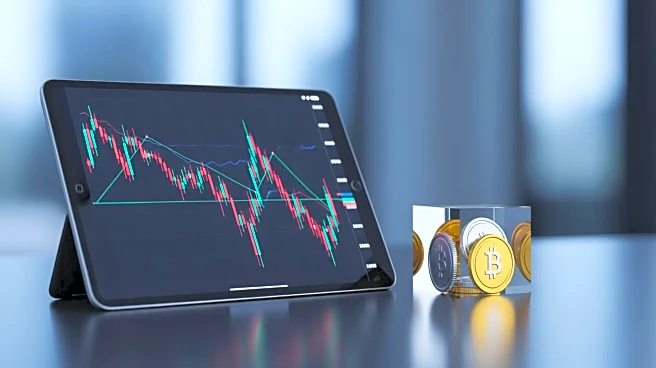What's Happening?
Nvidia CEO Jensen Huang has expressed concerns that China is poised to surpass the United States in the race for artificial intelligence (AI) supremacy. Speaking at the Financial Times' Future of AI Summit, Huang emphasized that China's vast developer
base and access to advanced AI chips, particularly those produced by Nvidia, position it advantageously in the global tech rivalry. Despite Nvidia's significant role in AI chip production, Huang noted that the Chinese government has restricted Nvidia's market access, complicating the U.S.'s efforts to maintain a competitive edge. Huang reiterated his desire for the U.S. to lead the AI race, advocating for a global tech ecosystem built on American technology. However, he warned that excluding China from this ecosystem could be detrimental, as it would alienate a substantial portion of the world's AI developers.
Why It's Important?
The comments from Nvidia's CEO highlight the ongoing technological competition between the U.S. and China, particularly in the field of AI, which is crucial for future economic and military capabilities. The U.S. stands to lose a significant advantage if it cannot engage with China's developer community, which could lead to a shift in global tech leadership. This situation underscores the importance of strategic policy decisions regarding technology exports and international collaboration. The potential exclusion of China from accessing advanced AI technologies could have long-term implications for U.S. companies like Nvidia, affecting their market reach and innovation capabilities.
What's Next?
The U.S. government, under President Trump's administration, has indicated a cautious approach to allowing China access to Nvidia's most advanced chips, suggesting a selective engagement strategy. This approach may lead to further diplomatic negotiations and policy adjustments as both nations navigate their tech rivalry. Nvidia's future actions, including potential applications for U.S. export licenses, will be closely watched as they could influence the company's market strategy and international relations. Stakeholders in the tech industry and government will need to consider the balance between national security and global market participation.















